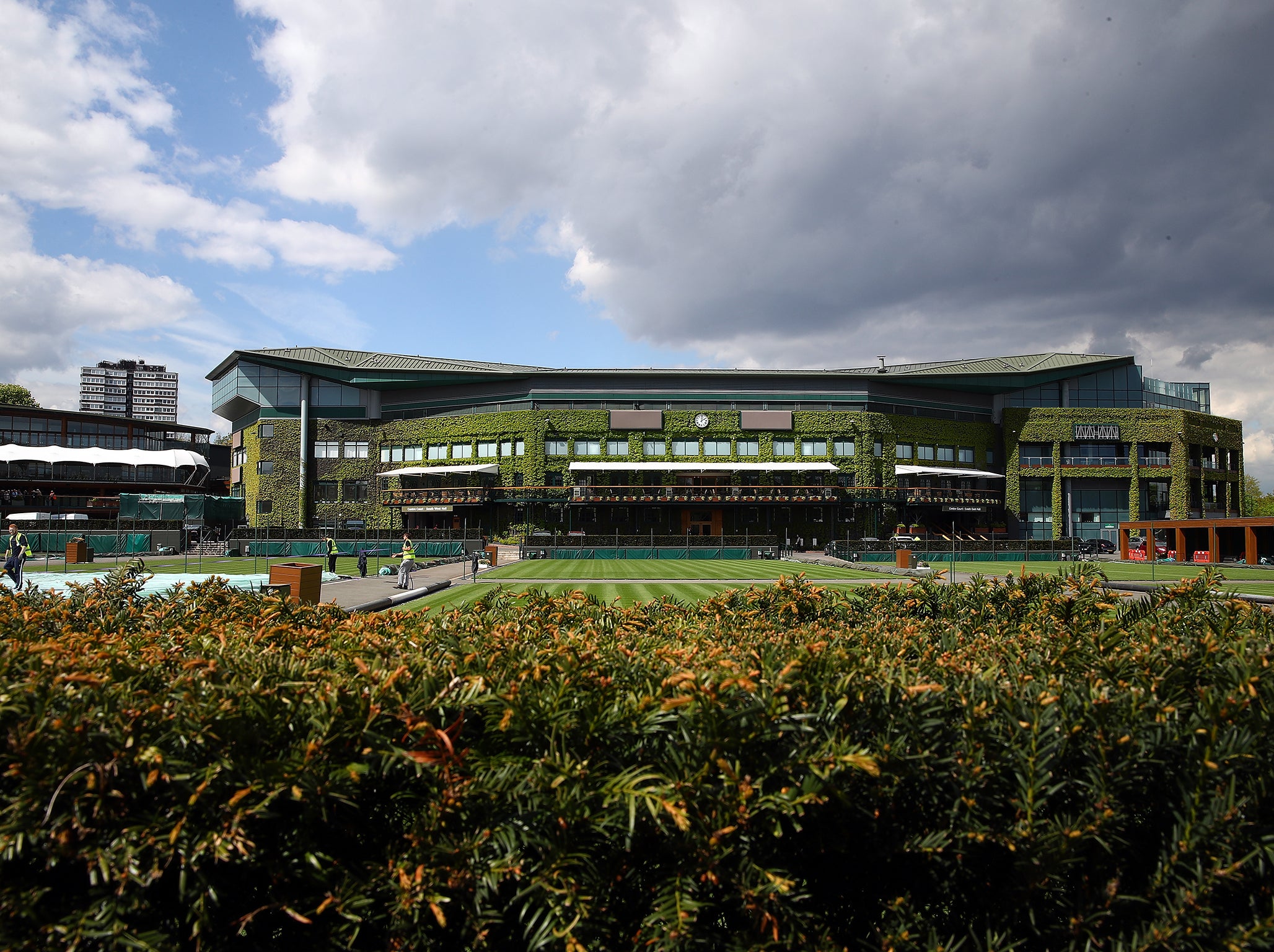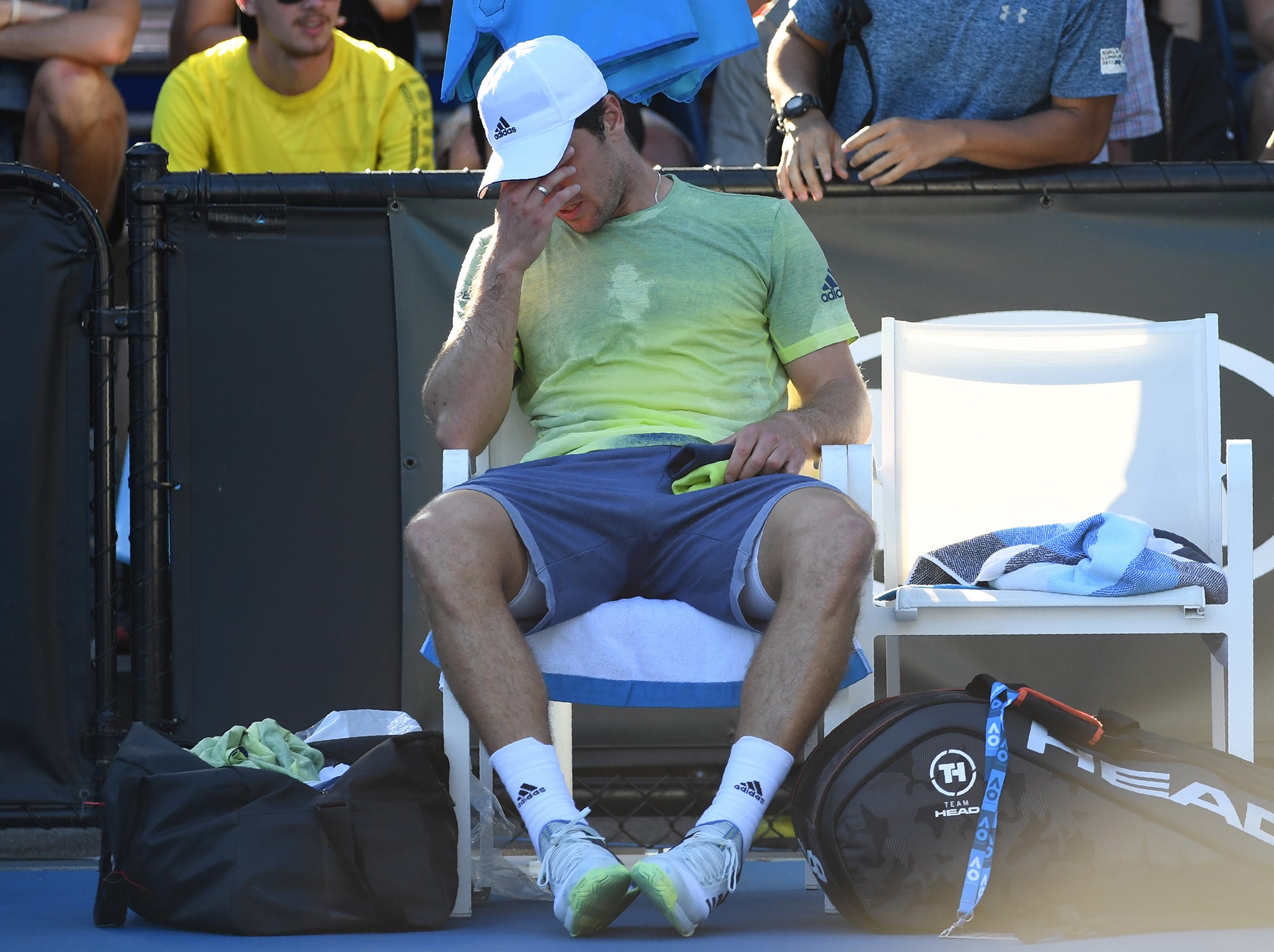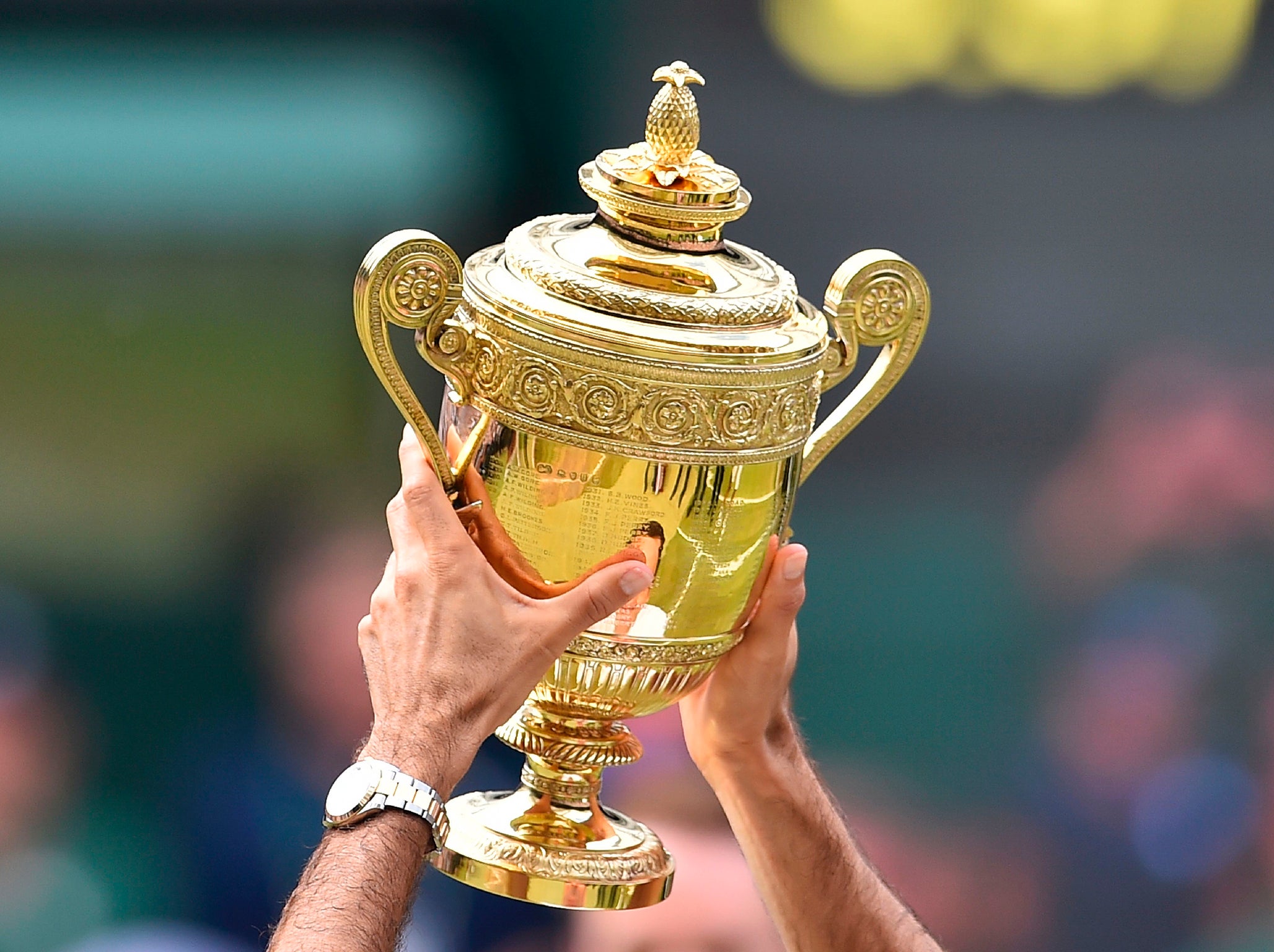Wimbledon set to introduce new rules that penalise injured players who retire mid-match
The Championships want to avoid a repeat of last year’s controversial afternoon on Centre Court when opponents of Roger Federer and Novak Djokovic retired in successive matches

Your support helps us to tell the story
From reproductive rights to climate change to Big Tech, The Independent is on the ground when the story is developing. Whether it's investigating the financials of Elon Musk's pro-Trump PAC or producing our latest documentary, 'The A Word', which shines a light on the American women fighting for reproductive rights, we know how important it is to parse out the facts from the messaging.
At such a critical moment in US history, we need reporters on the ground. Your donation allows us to keep sending journalists to speak to both sides of the story.
The Independent is trusted by Americans across the entire political spectrum. And unlike many other quality news outlets, we choose not to lock Americans out of our reporting and analysis with paywalls. We believe quality journalism should be available to everyone, paid for by those who can afford it.
Your support makes all the difference.Wimbledon are hoping that new rules at this summer’s Championships will avoid a repeat of last year’s controversial afternoon on Centre Court when opponents of Roger Federer and Novak Djokovic retired with injuries in successive matches.
Alexandr Dolgopolov and Martin Klizan lasted only nine and eight games respectively after going into the tournament with pre-existing injuries. A total of seven men retired hurt in their first-round matches, arousing suspicions that some had known they were carrying injuries but did not want to withdraw because of the substantial prize money they would forego.
Wimbledon announced on Tuesday that first-round losers this summer will earn £39,000 – an increase of 11.4 per cent – but confirmed that they will be implementing a new “50-50” rule which was first used at this year’s Australian Open.
Under the rule, injured players who are on site and were in the tournament draw can withdraw from their first-round matches and still receive 50 per cent of the prize money given to first-round losers. However, players who go into matches with a pre-existing injury run the risk of being fined up to 100 per cent of their prize money if Wimbledon believe they should not have played.
Germany’s Mischa Zverev fell foul of the rule in Melbourne in January when he was fined the equivalent of his first-round prize money when he retired hurt against Hyeon Chung.
“In the wake of last year’s first-round withdrawals we pledged to act on it and we have done so,” Richard Lewis, Wimbledon’s chief executive, said at the All England Club today. “We were very influential in the creation and adoption of the ’50-50’ rule and we hope that the introduction of it will play a significant role in mitigating the problems of first-round singles retirements.”

Prize money at this year’s Championships will total £34m, an increase of 7.6 per cent. While the men’s and women’s singles champions will have to get by on a rise of 2.3 per cent to £2,250,000, all singles competitors who go out before the quarter-finals will earn at least 10 per cent more than they did last year.
However, the increases are unlikely to appease those players who complain that the Grand Slam tournaments should pay out a bigger share of their revenues in prize money. There was even a suggestion before this year’s Australian Open that players might be prepared to go on strike.
Phil Brook, Wimbledon’s chairman, said that the All England Club had not had any discussions with players about prize money. “Our decisions today about prize money are our decisions,” he said. “We are proud of our record on prize money.”
Meanwhile Wimbledon expressed their broad support of the recommendations of last week’s Independent Review Panel which looked into corruption within the sport and how to combat it.

Lewis said Wimbledon agreed with the report’s finding that fewer players should be defined as “professionals”. At present players on the Futures circuit are regarded as professionals despite the fact that for most of them the prize money is not enough even to cover their costs.
Wimbledon think there should be no more than 500 professional players in the world. “It has always been absurd to call thousands of tennis players professionals,” Lewis said. “Professional tournaments should be defined as players being appropriately rewarded, not just with prize money but also, where appropriate, with accommodation, travel allowances and things like that.”
Brook said that no decision had been made on whether Britain’s Dan Evans would be given a wild card this summer if he applied for one following his return last week from a 12-month suspension after testing positive for cocaine.
There will also be no decision before June on whether Serena Williams will be seeded even if she still has a low world ranking following her return to competition after giving birth. Although the seedings for the women’s singles generally follow the world rankings, Wimbledon can make changes if they think they are appropriate.

Wimbledon confirmed their support of rules strictly enforcing five-minute warm-ups before matches, though players will be allowed 25 seconds between points (up from the previous limit of 20 seconds). However, Wimbledon will not be following other Grand Slam tournaments in installing on-court “shot clocks” for matches in the qualifying tournament.
Lewis also said that Wimbledon “totally disagrees” with suggestions that on-court coaching should be allowed. On the Women’s Tennis Association tour players are allowed to bring their coaches on to court.
Brook confirmed that work on a retractable roof over No 1 Court was on schedule for completion in 2019. There will be a new fixed roof on the court for this summer’s Championships, after which Europe’s largest crane will be brought on site to put 11 trusses, each weighing 100 tons, across the top of the stadium.
Join our commenting forum
Join thought-provoking conversations, follow other Independent readers and see their replies
Comments